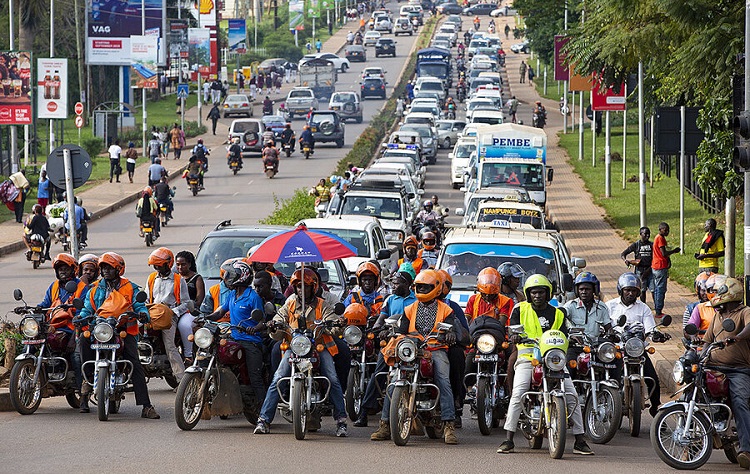Kenya has about 1.4 million registered boda bodas according to the latest stats from the sector. There are so many other boda boda’s that have not been registered, making the sector of the largest employer of the youth around the country.
Boda boda is the most common form of transport in Kenya. It is preferred because it is readily available and can access places that vehicles cannot access. In Nairobi, residents use boda boda’s to avoid traffic jams that are a nightmare sometimes.
In order to bring order within the boda boda sector, the riders formed their own association, the Boda Boda Association of Kenya which has over one million members. The association has been helping members with ways to diversify their investments.
Read More: Zamara Joins Hands With Federation Of Jua Kali Associations
Being one of the largest employers around the country, the boda boda sector controls a larger part of the economy in terms of transactions, something that has enhanced financial inclusion around the country. Given the fact that they are all over, boda bodas wield some power that is yet to be unleashed.
Savings within the boda boda sector
There are various groups of boda bodas around the country that have come together to form small associations that help them invest and diversify their streams of income. But saving among many members of this sector is still a huge challenge.
Various organizations have been trying to come up with saving products that might attract members of the boda boda sector but none seem to be clicking it. Zamara Group, having seen the disconnect and in an effort to harness the huge potential of the sector, came up with the Fahari product.
This coming Thursday, Zamara Group will be entering into a Memorandum of Understanding with the Boda Boda Association of Kenya to help cushion their financial future.

Mr. Sundeep Raichura, the Group-CEO of Zamara speaking at a different function.
The partnership, according to Zamara Group, is aimed at driving financial inclusion to the informal sector to enable saving, protection from old-age poverty, and pertinent risks that come along with the life cycle of the average boda boda rider.
Read More: Zamara Launches Kenya’s First Pension Plan On WhatsApp
The two parties have come to an agreement seeking ways to continue with the existing framework aimed at the protection of the sector’s members. The first initiative within the partnership is the rollout of Zamara’s Savings and retirement product, Fahari Retirement Product to boda boda members.
The Fahari Retirement Plan is an innovative individual retirement solution targeted to the individuals within the productive age of the population to save for their future. The majority of whom are active in the informal sector.
“We recognize that in the current environment we live in, the best way to have an adequate income for the future when you are not agile to work anymore is to gradually save as much as you can while you are still strong enough to work,” said Zamara Group in a statement.
Pension schemes, especially individual pension schemes like Fahari, are fundamental in the journey towards financial security.
Roughly speaking, if two individuals aged 20 and 30 starts saving 500 shillings every month up to age 55, their savings earn 10 percent per year compounded every year month.
The 20-year-old would have around 2.7 million at age 55, while the 30-year-old would have around 1.08 million shillings at age 55. This means that the value of an individual’s savings depends on their contribution level and how early you start saving for your future.
Financial Inclusion in the country has been limited to a small segment of the population within the formal sector and the penetration within the informal sector has perennially been low due to the lack of communication that speaks to the specific needs of the sector.
The Boda Boda sector is largely seen as an informal sector in Kenya whose importance to the economic development of the country cannot be underestimated.
The sector represents an integral part of the economy and indeed of the labor market. In many countries, the sector plays a significant role in employment creation, production, and income generation.
Read More: Top 5 Finance And Investment Lessons Post-Pandemic

